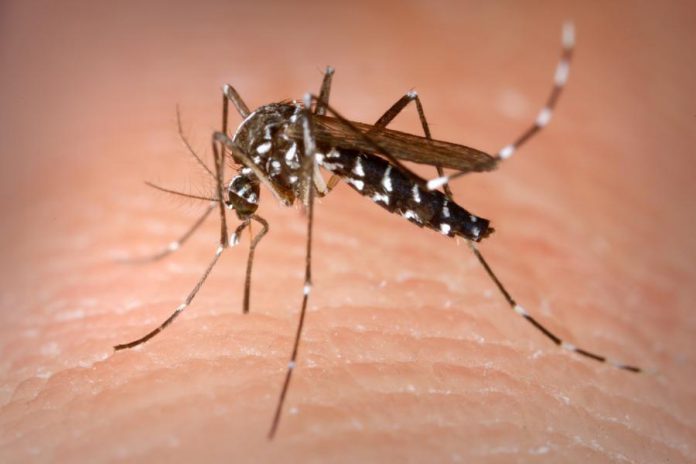Peterborough Public Health announced on Monday (July 27) that mosquitoes in the City of Peterborough have tested positive for West Nile virus.
These are the first virus-positive mosquitoes found in Peterborough and in Ontario this year. According to Public Health Ontario, there were no virus-positive mosquitoes identified in the province as of July 18th and no cases of people infected with West Nile virus.
The mosquitoes were trapped from Monday, July 20th to Thursday, July 23rd. During the summer and early fall, the health unit sets traps weekly throughout the city and county of Peterborough to gather mosquitoes for testing.
“Now that we’ve identified mosquitoes carrying West Nile virus in our area, it’s especially important that residents take care to prevent mosquito bites,” says public health inspector Wanda Tonus. “This is a good reminder for residents to get rid of any standing water in their yards and to take precautions to avoid mosquito bites.”
The majority of people infected with West Nile virus do not show any symptoms. Around 20 per cent of those infected people may have a mild flu-like illness with fever, headache, and body aches, occasionally with a skin rash and swollen lymph nodes or other non-specific symptoms that last several days.
Other symptoms may include nausea, vomiting, or eye pain. Less than one per cent of infected people will develop neuro-invasive disease, with older age groups and males disproportionately affected.
Although the risk of becoming infected is low, prevention against mosquito bites is the best protection:
- Cover up when going outside between the hours of dusk and dawn. Remember to wear a long-sleeved shirt or jacket and long pants (tucked into your socks for extra protection) and light-coloured clothing. if you will be outside for a long time, wear special clothing that is designed to protect you from bugs.
- Use insect repellent containing DEET. DEET is a powerful chemical. Always read the label directions for use, or ask your pharmacist for help when choosing a DEET product.
- Once a week, get rid of standing water around your home. Mosquitoes lay their eggs in even small amounts of stagnant water. Keep bushes and shrubs clear of overgrowth and debris, as adult mosquitoes like to rest in dense shrubbery, and turn your compost pile often.
The health unit notes the City of Peterborough is also larviciding — applying insecticide that is specifically targeted against the larval life stage of mosquitoes — catch basins within its jurisdiction. One round has been completed and a second round is underway.



























